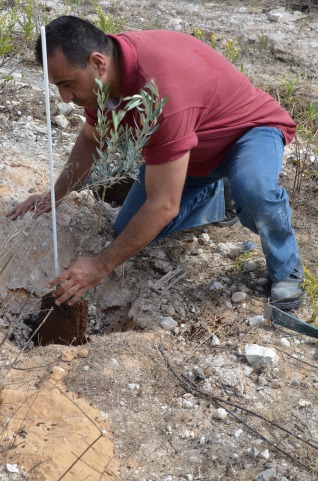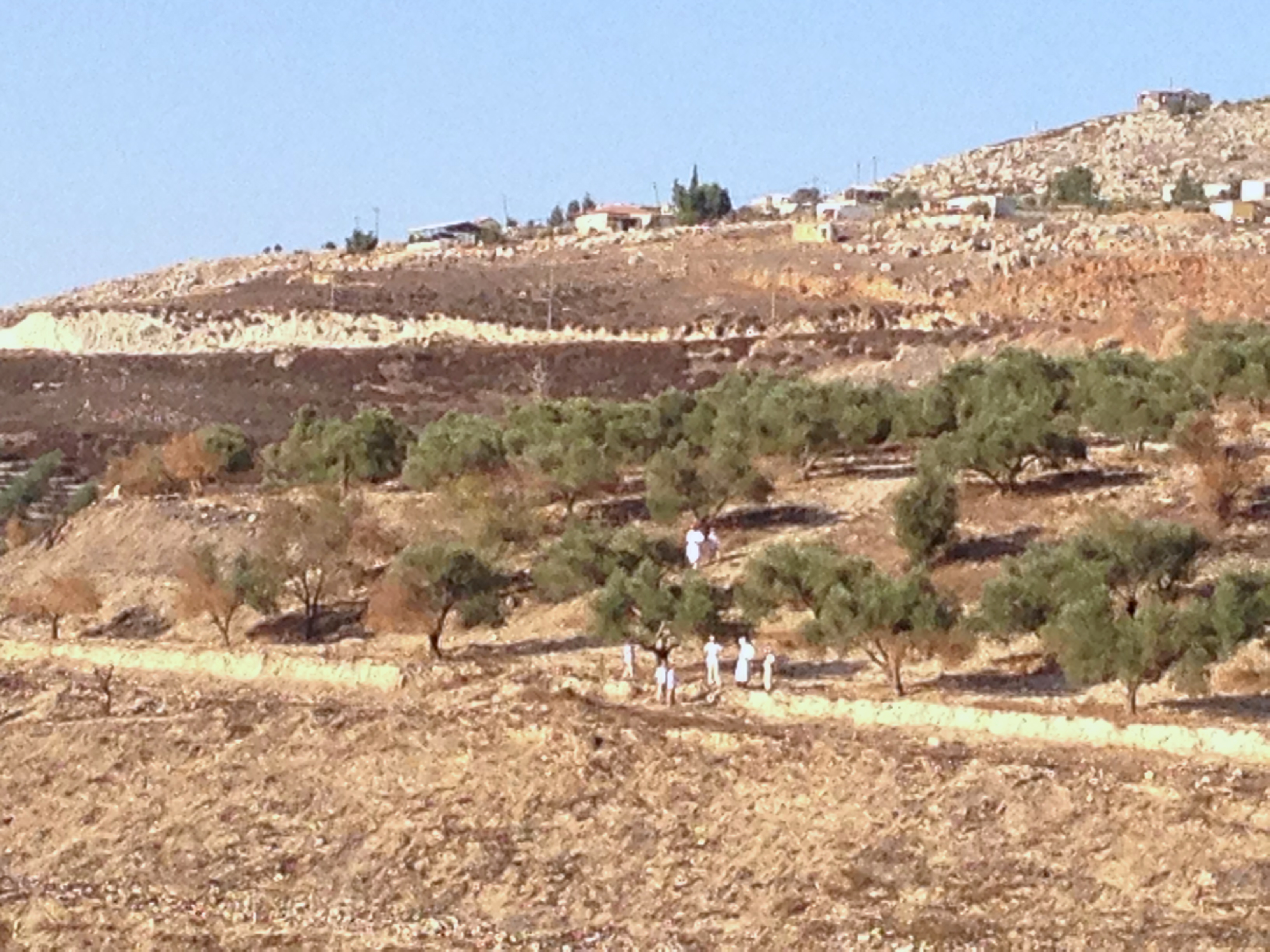Tag: Nablus
-
Palestinians celebrate the reclaiming of their land
4th October 2013 | International Solidarity Movement, Nablus Team | Burqa, Occupied Palestine On Thursday the 3rd of October, a large group numbering around a 100 people, consisting mainly of Palestinians from the village of Burqa and the surrounding areas, as well as a smaller contingent of international activists and the press, celebrated the Palestinians’ reclamation of…
-
Illegal Israeli settlers attack Palestinian farmer attempting to harvest almonds
14th September 2013 | International Solidarity Movement, Nablus Team | Kafr Qalil, Occupied West Bank Late Friday night we received a call to accompany a farmer to harvest almonds early the following morning in Kafr Qalil, a village south of Nablus. This is a completely normal activity, harvesting crops when they are ripe and ready-to-pick;…



